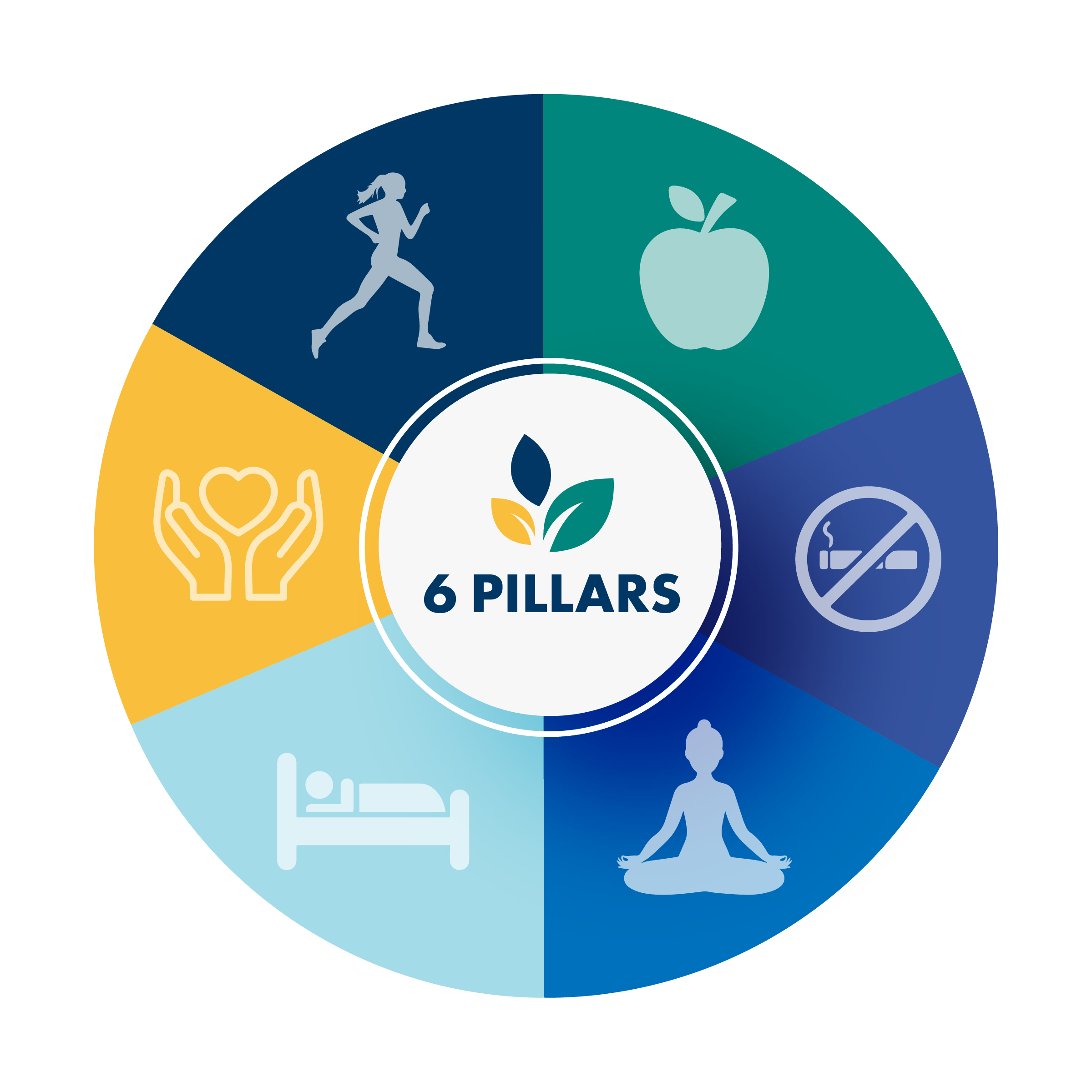
Free Consultation
Table of contents
Your Guide To Recognizing Teen Counseling
Teen counseling—what does it entail and how do we discern its necessity? What to expect in counseling for kids? The concept of a teen grappling with mental health issues can be a daunting consideration for any parent. Isn’t adolescence merely filled with expected upheaval and angst? Yet, while it’s true that the teenage years are characterized by rapid hormonal and developmental changes, we must not overlook the fact that 20%—or one in every five teenagers—face genuine mental health challenges. Let’s acknowledge that it’s perfectly acceptable! Teen counseling stands as a vital support system for adolescents dealing with a broad range of issues.
Imagine a day from a typical teen’s perspective. It’s a constant juggle of school, friendships, understanding one’s sexuality, handling romantic relationships, possibly working, and much more. All these experiences are novel and potentially overwhelming. Besides these stressors, numerous expectations lie upon their shoulders. Some teens shoulder responsibilities like taking care of younger siblings or managing household chores. Many are under pressure to excel in academics, sports, and other extracurricular activities. Adolescence is indeed a challenging phase, and this is where the value of counseling truly shines—it can be an invaluable ally during these trying times.
Concerns a Therapist Will Address
When does your teenager need to see a therapist or counselor? Therapists can effectively address a multitude of issues.
Facing Teen Trauma with Therapy
Teenagers may grapple with traumatic experiences from their past. These ‘adverse childhood experiences’ are distressing incidents that could have been frightening, violent, or life-threatening. As stated by Northwestern University, trauma can also develop secondhand—teens witnessing or learning about others’ traumatic experiences. This might include instances like a classmate battling a terminal illness, surviving catastrophic weather events, or experiencing a home’s loss due to a disaster.
Discussing trauma and working through it requires specialized expertise. A therapist is best equipped to help your teen navigate and grow. It might seem unsettling to have your child revisit these painful memories, but therapy often leaves them with heightened resilience and self-confidence.
Navigation Home Life Changes
While teenagers enjoy their independence, they still regard home as a safe haven. Any disruption, like divorce, moving houses, or the arrival of a new member, can be unsettling. If you observe your teen excessively worrying about these changes, a consultation with their doctor regarding a possible therapy session could be beneficial.
Relationships & Sexuality
Teens today are faced with numerous messages about relationships. They grapple with volatile friendships and the struggle for social acceptance, exacerbated by round-the-clock digital connections. With this digital exposure comes anonymity and the potential for increased bullying. Besides friendships, teenagers also encounter romantic relationships, often triggering questions about their identity and anxieties related to physical intimacy.

MS, LPCC, LPC, NCC
Therapist | Licensed Professional Clinical Counselor | Nationally Certified Counselor
Hi, I’m Megan Corrieri. With more than 15 years of experience as a teen counselor, I’ve dedicated my career to guiding individuals towards a better life. I believe in personalizing my approach to suit each individual’s unique needs, and I place a great emphasis on building trust, resilience, and emotional intelligence.
If you’re looking for someone to help your teen overcome their struggles and guide them towards a more fulfilling future, don’t hesitate to reach out to me today to schedule your first session.
Depression and Anxiety: Recognizing the Signs In Your Teen
Teens have a lot being thrown at them and, similar to younger children, they are new at this. It’s not uncommon for children to develop symptoms of depression and anxiety in their teen years and require help.
More teens than ever before are experiencing depression and anxiety and there is no shame in getting help. Try to think of it as going to the doctor for any other medical condition: the sooner you go, the sooner it’s understood and healing can begin.
The difference between common teenage moodiness and a more significant issue is often indicated by the length of time the child is experiencing symptoms. If a teen shows signs of depression and anxiety for two weeks, it may be time to think about counseling.
What are the symptoms of depression and anxiety in teens? Look for changes in:
- Weight
- Eating
- Sleep
- Friends, including ceasing social interactions
- Hopelessness, talk of despair
- Loss of interest in activities
If your child mentions harming themselves or others, or engages in self harming behaviors, seek medical attention immediately.
Teens and Social Media
The use of social media has skyrocketed among teens. While it has its benefits, the constant connection can also lead to feelings of inadequacy, jealousy, and anxiety.
The Pressure of Academic Achievement
The push for academic success can be a significant source of stress for many teens. Counseling can help them develop healthy study habits, set realistic goals, and learn to balance their time.
Is your teen struggling with death, dying or grief?
It’s hard for adults to navigate end-of-life, and teens can be hit especially hard. Dealing with mortality for the first time can cause worry. Children may worry about their own safety and the possibility of serious illness or, especially if an adult caretaker is very ill or dies, whether or not other adults in their life will also get sick and die. Teens may want independence, but it’s not the same as the idea of loss.
When to Consider Teen Therapy
Deciding when to seek counseling for your teen can be challenging, but recognizing the signs that suggest your teenager may need professional help is the first crucial step. Below are situations and behaviors that may indicate it’s time to explore local teen counseling options:
Sudden Changes in Behavior or Mood: Adolescence is a time of change, and mood swings are common. However, if your teen’s mood shifts become intense, or their behavior changes drastically and these changes persist for more than two weeks, it might be a sign that they’re struggling.
Persistent Feelings of Sadness or Anxiety: If your teenager frequently seems anxious, excessively worried, or is persistently sad and has lost interest in activities they once enjoyed, these could be signs of an underlying mental health issue.
Isolation and Withdrawal: While it’s normal for teens to desire privacy, if your child is avoiding friends, family gatherings, and social activities they once enjoyed, this could indicate a problem.
Academic Decline: A noticeable drop in grades, lack of interest in school, or frequent absences can also signal emotional distress or issues that could benefit from counseling.
Unhealthy Coping Mechanisms: If your teen is turning to unhealthy habits like substance use, self-harm, disordered eating, or other harmful behaviors to cope with their feelings, professional help is urgently needed.
Physical Symptoms: Mental distress can manifest as physical symptoms such as persistent headaches, stomach aches, trouble sleeping, or significant changes in weight or appetite.
If your teen is experiencing any of the above, consider looking for “teen counseling near me”. Local counseling offers many benefits. Attending sessions can be easily integrated into your teen’s routine without the need for extensive travel. It also provides the chance for face-to-face interaction with a therapist, which can build a stronger therapeutic relationship.
Choosing a local therapist at Northstar Counseling & Therapy means choosing someone who understands the challenges and pressures faced by teens in the Frisco, TX community. By investing in local counseling, you’re offering your teenager an accessible and reliable support system during their crucial adolescent years.
How to Prepare Your Teen For Counseling
Taking the first step towards teen counseling can be challenging, both for parents and their children. It’s crucial to approach the process with care and understanding, ensuring your teenager feels comfortable and reassured. Here’s how you can prepare your teen for their first counseling session:
Open Discussion: Begin with an open and honest conversation about why you believe counseling might be beneficial. Use empathetic language and reassure your child that feeling anxious or nervous is perfectly normal. Explain what therapy is, emphasizing that it’s a non-judgmental space to express feelings, understand emotions better, and develop coping strategies for life’s challenges.
Addressing Concerns: Your teen may have several questions or apprehensions about therapy. They might worry about confidentiality, the nature of the sessions, or fear being judged. Address these concerns patiently, reassuring them that their feelings are valid and that a therapist’s role is to provide support, not to criticize or judge.
Choosing the Therapist Together: If possible, involve your teen in the process of choosing a therapist. This can empower them and increase their comfort level. You can research different therapists together, discuss their qualifications, and perhaps even arrange an initial meet-and-greet session.
Setting Expectations: Discuss what a typical counseling session might look like. It’s important to stress that the therapeutic process varies from person to person – it’s not a one-size-fits-all approach. Sometimes progress may seem slow, but that’s perfectly okay. Remind them that therapy is a journey, not a sprint.
Ensuring Emotional Preparedness: Encourage your teen to reflect on what they hope to achieve from therapy. They might want to alleviate their anxiety, improve their self-esteem, or learn healthier coping mechanisms. Having a clear understanding of their goals can help your teen enter the therapeutic process more prepared.
Support and Respect: Last but not least, assure your teen of your unconditional support throughout this journey. Respect their privacy if they don’t wish to share everything they discuss in therapy. Such boundaries can strengthen their trust in you and make them feel more at ease with the process.
Remember, starting therapy is a big step for your teenager, and your role as a supportive parent is crucial. With patience, understanding, and open communication, you can prepare your teen for counseling, helping them embark on a path towards improved mental well-being.
Benefits of Teen Therapy
Navigating the complexities of adolescence can be a daunting task for many teens. Amidst the whirlwind of hormonal changes, peer pressure, academic expectations, and evolving self-identity, it’s easy for teenagers to feel overwhelmed. This is where the role of teen counseling becomes crucial. Teen counseling offers a safe space for adolescents to express their thoughts, confront their fears, and develop coping mechanisms. Here’s a more detailed look at its multifaceted benefits:
Emotional Resilience: Adolescence is a time of emotional upheaval, and therapy provides teens with the tools they need to build resilience. It equips them with strategies to navigate emotional challenges, bounce back from setbacks, and develop a healthier outlook towards life’s ups and downs.
Improved Communication: A significant aspect of teen therapy involves enhancing communication skills. Teenagers learn to articulate their feelings more effectively, express their needs assertively, and resolve conflicts in a healthy manner. These skills not only benefit their current relationships but also set the foundation for future interactions.
Managing Stress and Anxiety: With academic pressures, societal expectations, and the typical worries of growing up, stress and anxiety can easily seep into a teenager’s life. Counseling helps them recognize signs of stress, understand its triggers, and develop effective coping mechanisms. Techniques such as mindfulness, cognitive restructuring, and deep-breathing exercises are often incorporated into therapy.
Self-esteem and Self-confidence: Adolescence is a critical period for the development of self-esteem and self-confidence. Through therapy, teens learn to embrace their strengths, challenge their self-doubts, and cultivate a healthier self-image. This boost in confidence often translates into improved performance in various areas of their lives.
Behavioral Changes: Teen therapy can also help address behavioral issues. Whether it’s defiance, aggression, or withdrawal, therapy provides a safe and non-judgmental space to explore these behaviors’ root causes and find healthier ways to respond.
Coping with Major Life Changes: Teen therapy can be especially beneficial when adolescents face significant changes, such as parental divorce, relocation, or the loss of a loved one. A therapist can provide the necessary support during these challenging times, helping the teen process their emotions and adapt to their new circumstances.
Prevention and Early Intervention: Lastly, teen therapy is not just a reactive measure—it’s preventive too. Regular counseling can help detect early signs of mental health issues and provide early intervention, potentially preventing a full-blown crisis.
By engaging with a therapist at Northstar Counseling & Therapy, your teen can reap these benefits and more. Remember, investing in your child’s mental health today can set the stage for their overall wellbeing in the future.
Help Your Teen With Counseling
Many teens struggle with self-esteem, and therapy can help them build a positive self-image. Counselors at Northstar Counseling & Therapy work with teens to recognize their strengths and achievements and foster a sense of self-worth.
By investing in teen counseling at Northstar Counseling & Therapy, Frisco parents are providing their children with a solid support system to navigate their journey through adolescence.

Megan Corrieri
Owner, Clinician, Wife & Mom
Share:
Recently released








